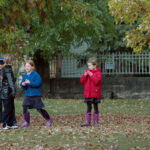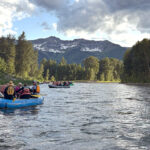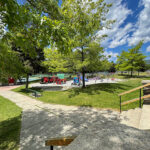Home »

A cascade of poetic words
Book Review
By Derryll White
Hage, Rawi (2006). DeNiro’s Game.
This is something different for me. This is Hage’s first novel, set in war-torn Lebanon, a country and region I have never been to and know nothing about.
 I do know that Rawi Hage has been acclaimed by the Canadian literary establishment and that his publishers submitted this manuscript to almost every literary award/competition known to man. The book has been sitting on my shelf for years mostly because of that fact. I do not appreciate the ego-drive of publishing, the literary hype of the book industry that passes for marketing. However, with time, several people have encouraged me to read ‘DeNiro’s Game.’
I do know that Rawi Hage has been acclaimed by the Canadian literary establishment and that his publishers submitted this manuscript to almost every literary award/competition known to man. The book has been sitting on my shelf for years mostly because of that fact. I do not appreciate the ego-drive of publishing, the literary hype of the book industry that passes for marketing. However, with time, several people have encouraged me to read ‘DeNiro’s Game.’
Hage immediately draws me in. The image of Christian cats snubbing black-clad priests is not something my imagination can ignore. I feel my pulse quicken and my eyes move faster. I love the chaos of his words, the immediate disrespect both for grammatical sequence and linear thinking. The war, the ignorance of greed, the order of civil society all fall away under the cadence of Hage’s frenzied imagery.
The novel is a cascade of poetic words, a waterfall of foreign characters, situations, religions and realities. What keeps it relevant, close to home, is Hage’s ability to employ the rush of war, the chaos of youth, in building a construct that reaches past Beirut into the memory of everyone. It is Vietnam or Kosovo! Bassam and George become synonymous with every crazy, insane endeavour of our own youth. This is a very personal plea which includes all worlds, all politics, all love.
‘DeNiro’sGame’ is a wonderful re-exploration of the energy and frenetic life that brought Beat literature to the world. Anyone who loves words, loves exploration of different possibilities, should consider reading ‘DeNiro’s Game.’
********
Excerpts from the novel:
BEIRUT: Summer and the heat had arrived, the land was burning under a close sun that cooked our flat and its roof. Down below our white window Christian cats walked the narrow streets nonchalantly, never crossing themselves or kneeling for black-dressed priests.
HISTORY: I climbed onto George’s motorbike and sat behind him, and we drove down the main streets where bombs fell, where Saudi diplomats had once picked up French prostitutes, where ancient Greeks had danced, Romans had invaded, Persians had sharpened their swords, Mamluks had stolen the villagers’ food, crusaders had eaten human flesh, and Turks had enslaved my grandmother.
SEX: Those lazy cats lingered under unwashed cars, watching the passing Italian shoes, painted nails, colourful and torn-out cuffs, pointy high heels, plastic flippers, stomping naked feet, and delicious exposed ankles that thick hands would bind, release, and slip higher to reach a flow of warm fluid that carefully, generously turned into as modest flood smelling of eel, red fish, and rosewater.
WAR: Inside our houses, there were women stranded in kitchens, cooking. From below a radio was playing, a mother was calling her kid, a few passing cars rolled slowly through our narrow street. There was that silence, that quietness before bombs fall and teeth shatter and kids piss in their older brother’s shorts, and young girls menstruate before their time, and windows shatter, and glass slices our dark flesh wide open.
BEIRUT: As I walked, I passed my old school. Children in grey smocks wlaked in groups, books in their hands and in their brown satchels. They shuffled their feet in the direction of the long refectory, toward the priest in long robes, toward Napoleonic battles, toward ninety-degree triangles, toward Jahiliyyah poems of drunken Bedouins who praised many gods, and mourned the dead who dwelt under soft sand, over the shifting dunes, swaying with the dancing palms under a little bowl of half-lit moons.
WINE: A burgundy wave waited on the coast of her lips for the word to leave.
PHOTOGRAPHY: One day we went to a photography exhibit and she walked calmly in front of every frame, posing in front of each photo. Photography is about death, she said to me. It preserves the illusion of a past moment that can never be re-enacted.
DEATH: And when Rambo whispered to me, assuring me of my nearing death, I was relieved at my parents’ absence, for my death like all death should be a death and an end – no memory, no photography, no stories, and no mother’s tears. In death everything should cease. All else is nothing but human vanity and make-believe.
 – Derryll White once wrote books but now chooses to read and write about them. When not reading he writes history for the web at www.basininstitute.org.
– Derryll White once wrote books but now chooses to read and write about them. When not reading he writes history for the web at www.basininstitute.org.







